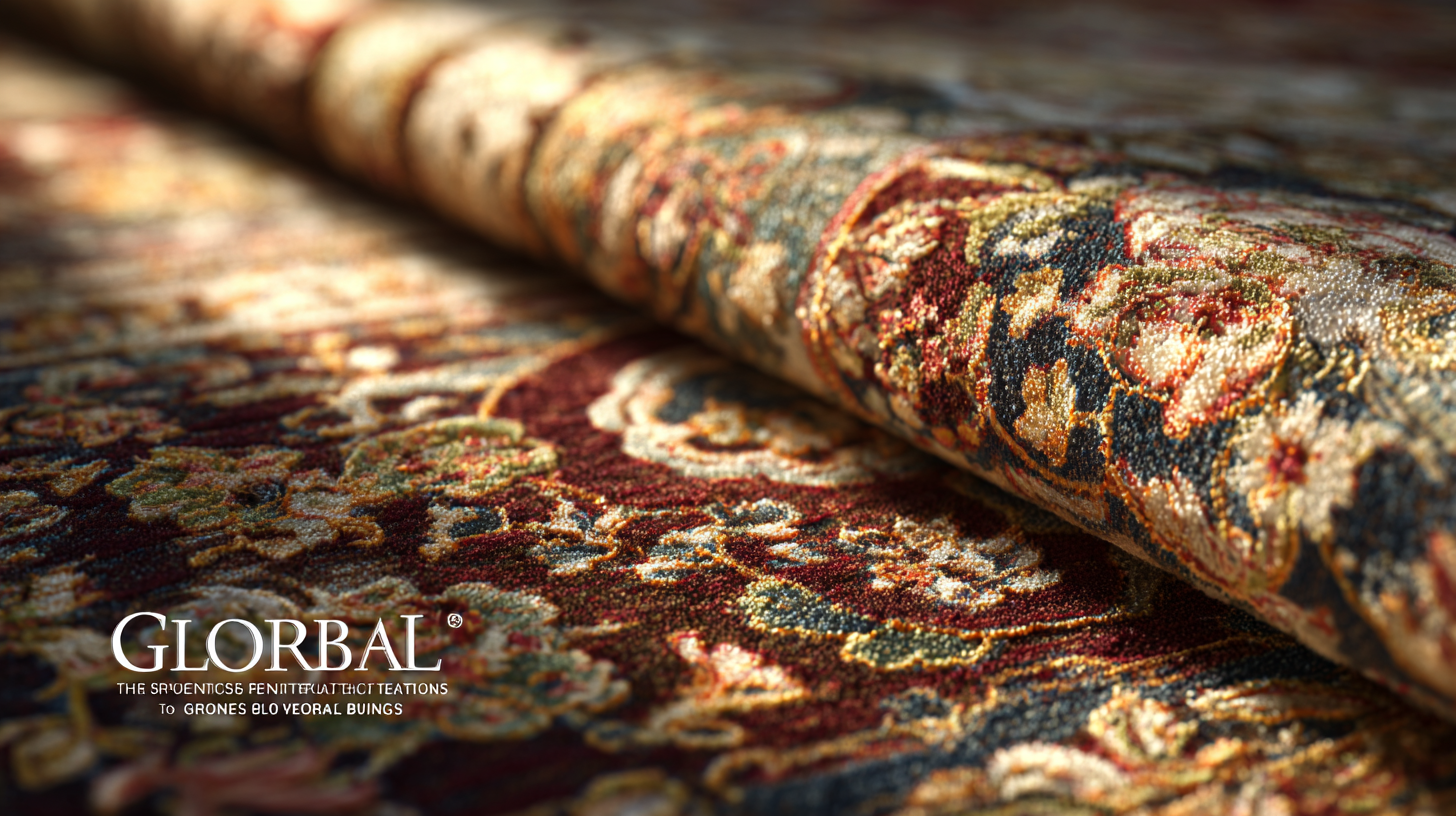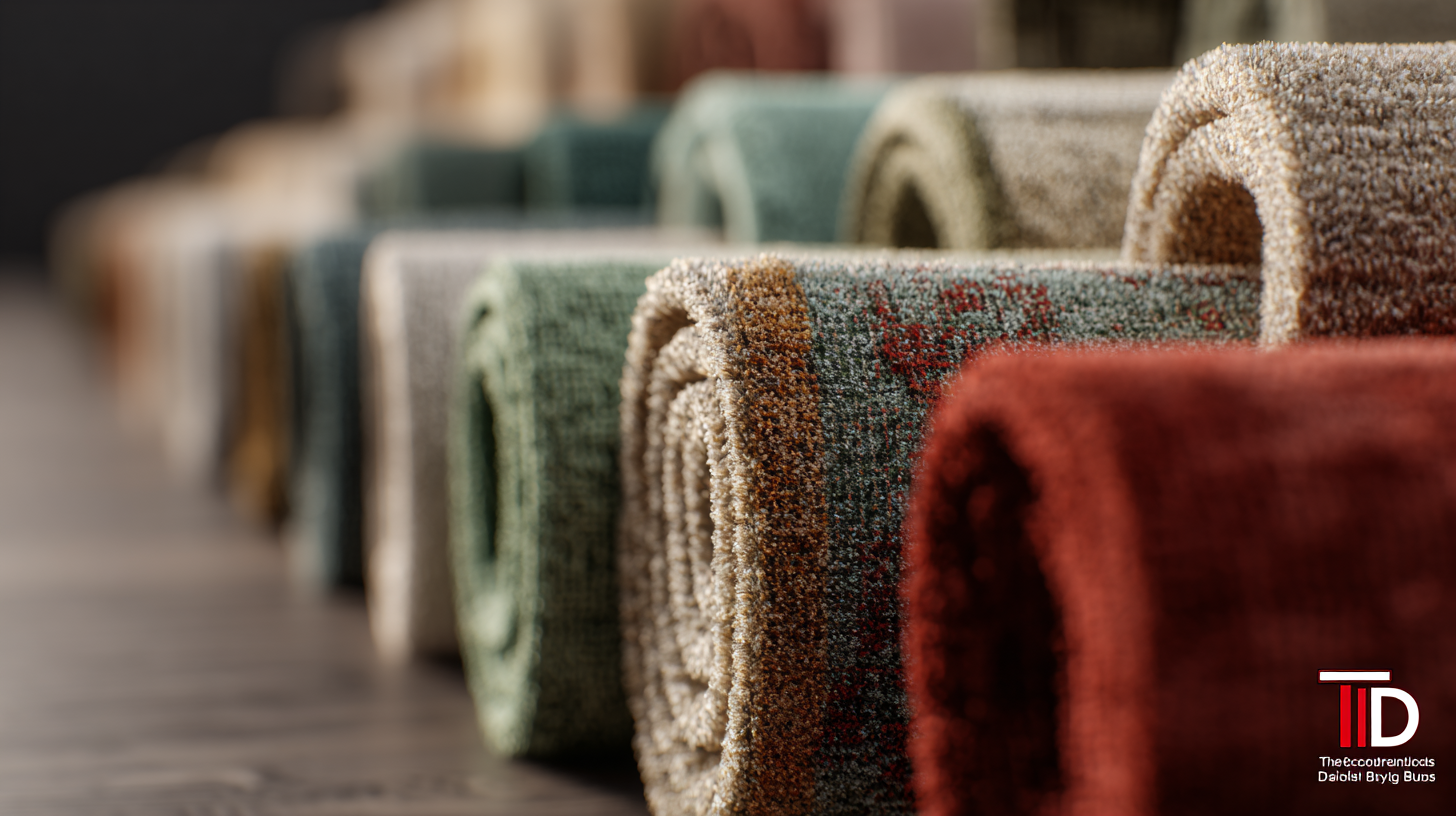
-
Home
-
About Us
-
Products
-
News
-
Blog
-
Contact Us
Leave Your Message

In the world of hospitality, the ambiance of a hotel plays a crucial role in creating memorable experiences for guests, and one often overlooked element is the Hotel Carpet. As an essential part of interior design, the right carpet not only enhances the aesthetic appeal of a space but also contributes to comfort and functionality. For global buyers exploring top options, understanding the technical specifications of premium hotel carpets is imperative.

This blog will delve into the various features, materials, and innovations that define the best hotel carpets on the market today. From durability and stain resistance to eco-friendliness and design versatility, we will unveil the essentials that can elevate your hotel’s interiors, ensuring that your investment not only meets but exceeds guest expectations.
Join us as we navigate the intricate world of Hotel Carpets and uncover the top types that stand out for quality and style.
In the hospitality industry, the importance of carpet specifications cannot be overstated. The right carpet not only enhances the aesthetic appeal of a hotel but also plays a vital role in guest comfort and satisfaction. High-quality carpets are designed to withstand heavy foot traffic and resist staining, which is crucial in maintaining a welcoming atmosphere. Specifications such as fiber type, density, and backing material contribute significantly to the carpet's durability and performance, ensuring it can endure the challenges posed by a bustling environment.
Moreover, understanding carpet specifications helps hotel buyers make informed choices that align with their brand identity and operational needs. For instance, carpets made from nylon are known for their resilience and longevity, making them ideal for high-traffic areas. On the other hand, eco-friendly options, like recycled materials, appeal to sustainability-conscious establishments. By prioritizing specific features such as sound absorption and easy maintenance, hotel owners can create a more inviting environment for their guests while also reducing long-term costs associated with carpet replacement and upkeep.
When it comes to selecting the best carpet for hotels, understanding the key materials and manufacturing processes is crucial. Hotel carpets are engineered to withstand heavy foot traffic while maintaining aesthetics and comfort. The most common materials used include nylon, polyester, and wool.
Nylon is favored for its durability and stain-resistance, making it ideal for high-traffic areas. Polyester, on the other hand, offers vibrant color options and eco-friendly choices, while wool is recognized for its luxurious feel and natural resilience.
The manufacturing process also plays a significant role in the performance of hotel carpets. Tufted carpets dominate the market due to their cost-effectiveness and quick production time. In contrast, woven carpets, although pricier, provide exceptional longevity and intricate designs. Techniques such as solution dyeing enhance colorfastness, which is essential for maintaining the appearance of carpets in sunny lobbies or dining areas. Understanding these materials and processes enables global buyers to make informed choices that align with their hotel's branding and operational needs.
When selecting hotel carpeting, durability and maintenance needs play a crucial role in ensuring a long-lasting investment. High-traffic areas demand carpets that can withstand heavy footfall without losing their aesthetic appeal. Materials such as nylon and polypropylene are often recommended due to their resilience and ability to resist stains. Additionally, carpets with a tight weave are less likely to fray, making them ideal for hotels that experience constant use.
Maintenance is another critical factor to consider. Hotel owners must evaluate the ease of cleaning and upkeep for each carpeting option. For instance, carpets with built-in stain resistance can significantly reduce the frequency and intensity of cleaning. Regular vacuuming and periodic deep cleaning should be standard practice to maintain both hygiene and appearance. It’s also beneficial to choose carpets that dry quickly after cleaning to minimize disruption to guests and operations. By prioritizing durability and manageable maintenance needs, hotel managers can ensure their carpeting will not only enhance the guest experience but also provide economic value over time.
When it comes to selecting hotel carpets, aesthetic considerations play a crucial role in creating an inviting atmosphere for guests. The visual appeal of a carpet can greatly influence a visitor's first impression. Designers now prioritize color schemes and patterns that not only enhance the beauty of a space but also align with the hotel's overall theme. Natural hues and organic patterns are increasingly popular, reflecting a shift towards sustainability and nature-inspired designs. Such choices create a soothing ambiance while ensuring that they remain timeless and versatile.
Moreover, the texture and material of hotel carpets are essential aspects that contribute to their overall aesthetic. Plush, high-quality fibers can elevate the guest experience, offering comfort underfoot while also minimizing noise—an important factor in tranquil hotel environments. In addition, innovative designs such as geometric patterns or bold prints can serve as focal points, adding character to lobbies or corridors. These trends illustrate how carpet selection is not merely a functional aspect of hotel design but a vital element that complements the brand's identity and enhances the guest experience.

Carpets and rugs go beyond mere decoration; they play a crucial role in enhancing the ambiance of hotel interiors while reflecting the establishment's values, including sustainability. With growing concerns regarding environmental impact, leading hotel carpet manufacturers are adopting sustainable practices in production. This focus not only helps preserve natural resources but also aligns with the increasing demand for eco-friendly accommodations. By employing innovative materials and energy-efficient methods, manufacturers are setting new standards for the industry.
When choosing carpets for hospitality environments, consider the following tips: firstly, look for products made from natural fibers, which are often more sustainable and biodegradable. Secondly, opt for suppliers who prioritize ethical sourcing and production processes; this can significantly reduce the ecological footprint of your hotel. Lastly, always check for certifications that validate the sustainability claims of carpets. Investing in sustainable carpets is not just a trend; it is a step towards a more responsible and conscious hospitality industry.
